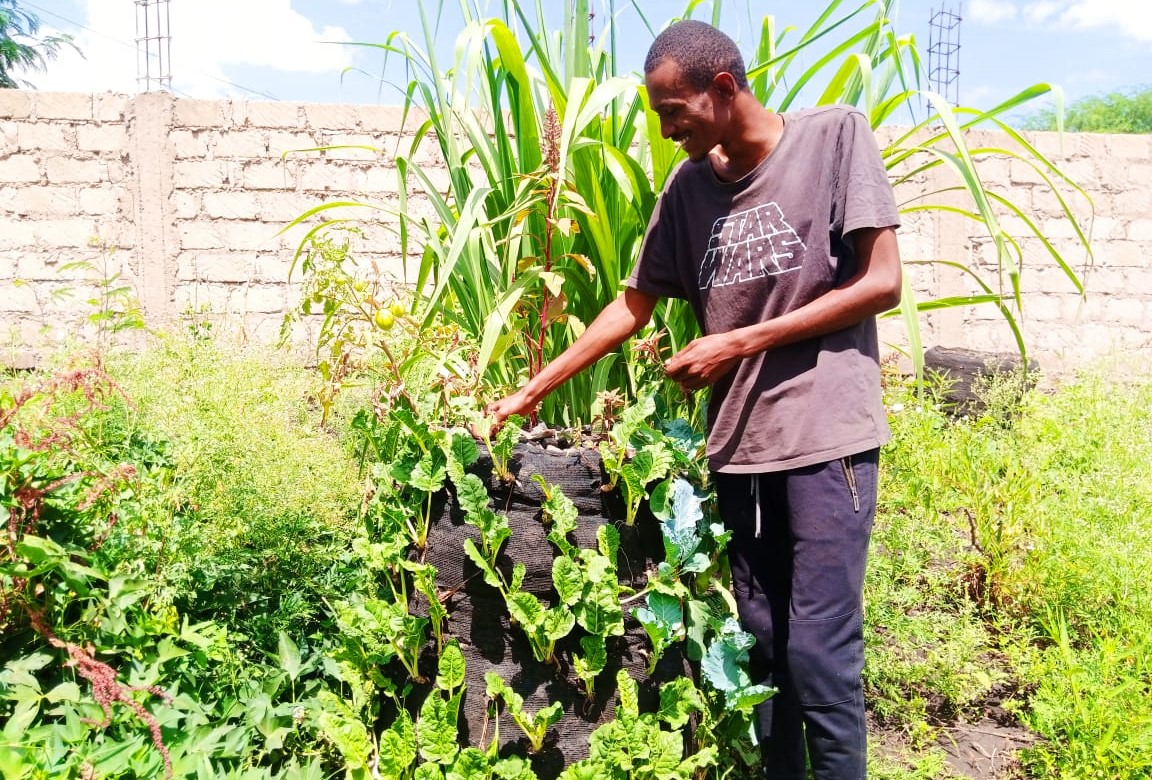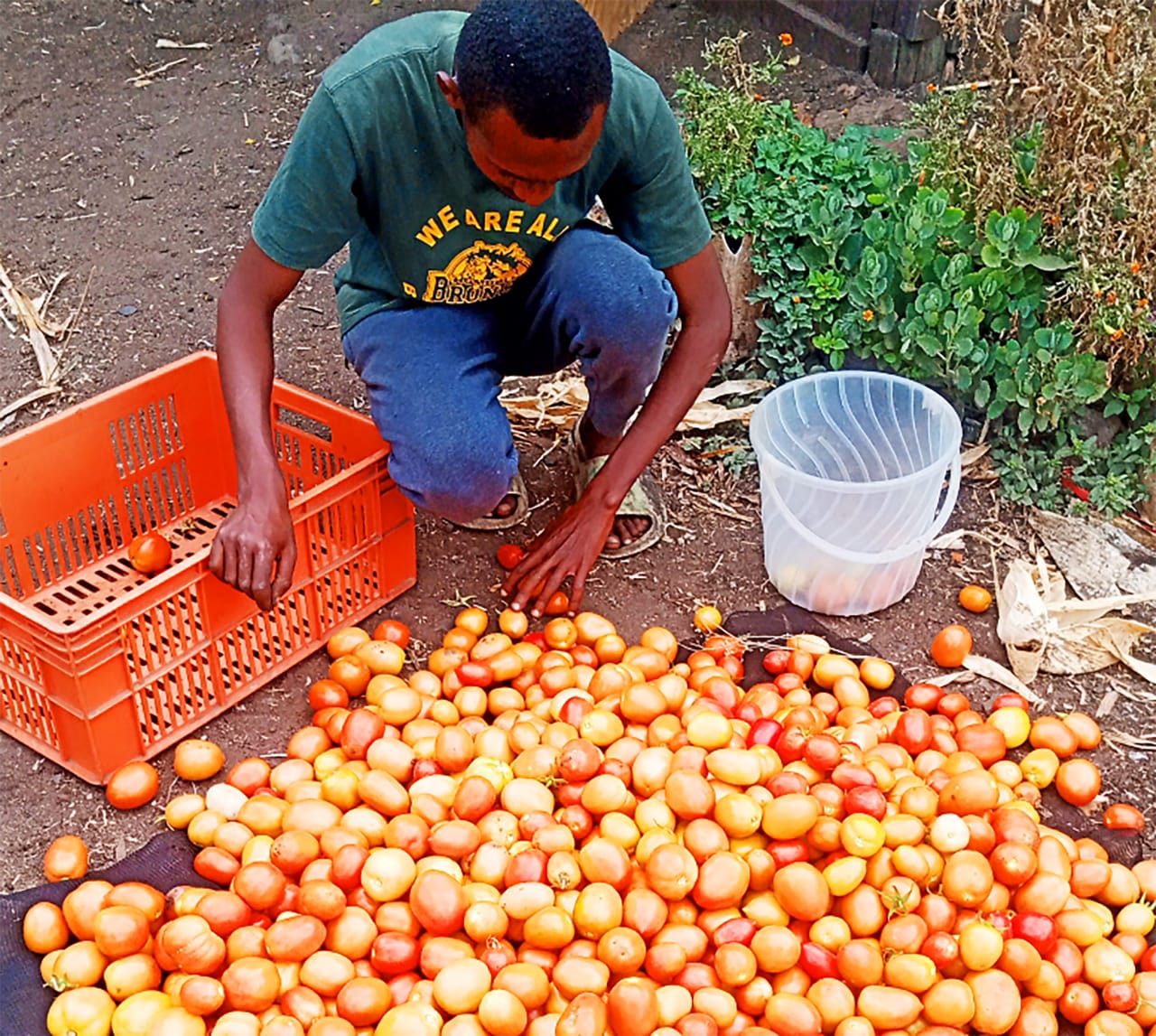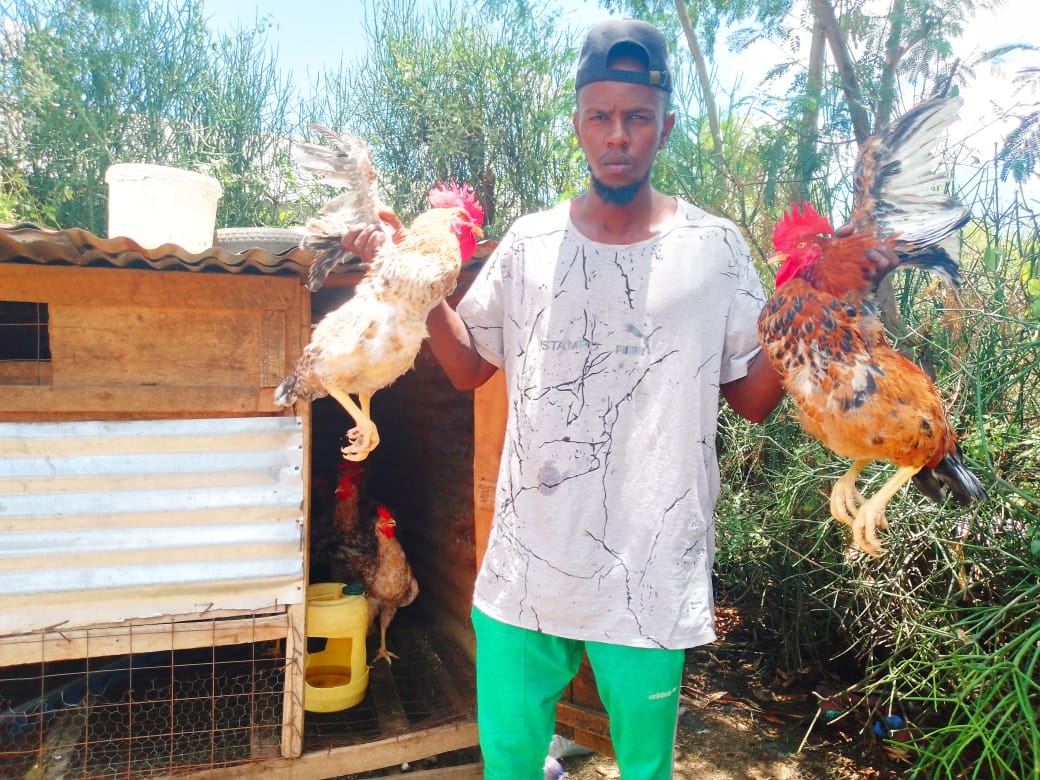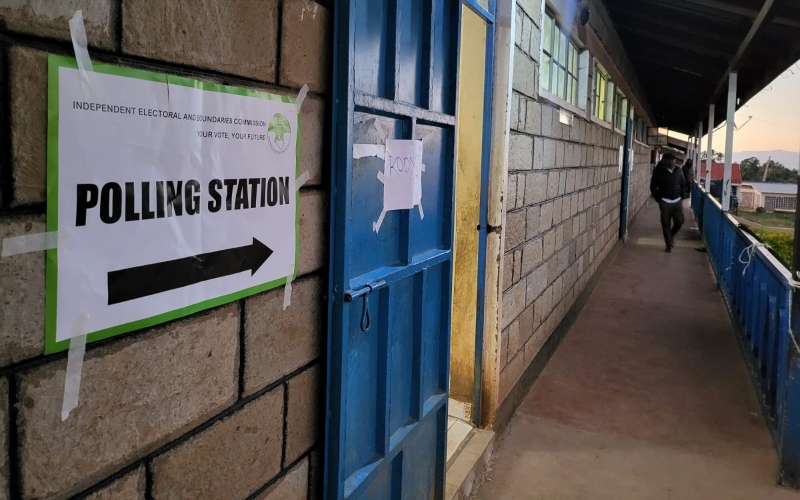Farming keeps youth in Isiolo off drug abuse

With support from various organisations like the World Food Programme, the youth are now changing the narrative by venturing into vertical bag farming.
Idd Bilal, who learned poultry farming online and started with four birds in 2019, has grown the population to over 100, with returns from the venture enabling him to fend for his family and do some developments at his home.
Besides poultry, the young man from Bulapesa in Isiolo County also has a sweet potato farm that is due for harvest in a month.
More To Read
- Isiolo residents to benefit from Sh770 million community projects
- Isiolo leaders push for fast-tracking of development projects
- 10-member committee unveiled to track national projects in Isiolo County
- International investor to operate new Isiolo abattoir as locals await benefits
- Isiolo County morgue reopens after eight-month closure for renovations
- Isiolo widows join hands in eradicating poverty, drug abuse among youth
“I sold 50 chickens and 35 cocks last December and used the money to buy a motorbike that helps me deliver eggs and meat to the local market. I make between Sh20,000 and Sh30,000 every month from the sale of eggs and the birds,” Idd told The Eastleigh Voice.
His is a story of how young people who focus on productive activities can succeed amid challenges like poverty and drug abuse.
Drug proliferation remains a challenge in Isiolo, with narcotics being sneaked into the county through the porous Kenya-Ethiopia border. Heroin, the country’s most widely used narcotic after bhang, is the most abused in the region.
Idd is among a group of young people from Bulapesa who are now changing the narrative by venturing into farming, with support from various organisations including the World Food Programme.
“We want people to know that there are a lot of hardworking, talented, and passionate youth in Bulapesa, who only require a little support to achieve their dreams and not all have been trapped in drug abuse,” he said.
Taking the risk
Young Kenyans hardly engage in farming due to lack of capital, poor access to land, inadequate knowledge, and lack of patience, but some youth in Bulapesa have decided to take the risk.
 Ramadhan Mutethia sorts tomatoes that he harvested from his farm within the Oasis area in Bulapesa, Isiolo County. (Photo: Waweru Wairimu)
Ramadhan Mutethia sorts tomatoes that he harvested from his farm within the Oasis area in Bulapesa, Isiolo County. (Photo: Waweru Wairimu)
The young farmers are taking advantage of a new, simple farming technology — the use of vertical bags.
By using this technology, Ramadhan Mutethia now has a farm that is green with leafy vegetables and orange-fleshed sweet potatoes.
Immediately after completing Form Four at Bulampya Secondary School in 2022, Ramadhan started working at local construction sites to make ends meet, but only for a few months.
“It is after a three-week training on vertical bag technology (by WFP) early last year that I decided to try farming that utilises vertical space and is efficient in water use,” he says.
Farming, he says, has offered him a source of income and also contributed to his family’s food security as they no longer buy vegetables and other foods.
Vertical bag farming promises to change the fortunes of the residents of Bulapesa, where the majority live in deplorable conditions, can barely afford three meals a day and have for a long time been neglected by their elected leaders and the government.
Ramadhan has also been training young people in other parts of the ward on how to set up the vertical bags.
Bulapesa has borne the brunt of drug abuse, with some of the addicts unable to do simple tasks like bathing, while others have had mental disorders and have to be tied with chains to prevent them from becoming violent.
Income-generating ventures
However, with the adoption of vertical bag farming, especially by young people, it is hoped that many will discard the use of drugs and engage in income-generating ventures.
 Idd Bilal displays some of the birds he has reared at his home in Bulapesa, Isiolo County on March 27, 2024. Photo/Waweru Wairimu
Idd Bilal displays some of the birds he has reared at his home in Bulapesa, Isiolo County on March 27, 2024. Photo/Waweru Wairimu
Ali Kush Dabaso, another young man from Bulapesa, also ventured into farming after seeing Ramadhan’s success.
“Hunger has become a thing of the past in our families. Besides selling vegetables and pepper to local retailers, our neighbours know they can always pass by and pick something to cook,” Ali says.
He says the lack of regular water supply and unpredictable weather patterns continued to hinder production. The recent El Nino rains, he says, left a trail of destruction on his farm.
“If we would get pipes to direct the water going to waste to farms, we would increase our productivity and feed more people,” he says.
Sarah Farhiya Rapana has been helping the farmers set up the vertical bags and recently assisted local youth in registering a group to help them get assistance. The technology, she said, is slowly making farming viable and attractive to local youth.
“We want to help them earn income and contribute to the county’s food security. Keeping them engaged keeps them away from drugs,” she told The Eastleigh Voice.
The young farmers are happy to be slowly influencing behaviour change and changing the perception of Bulapesa, which they say has a lot of potential.
Top Stories Today














































